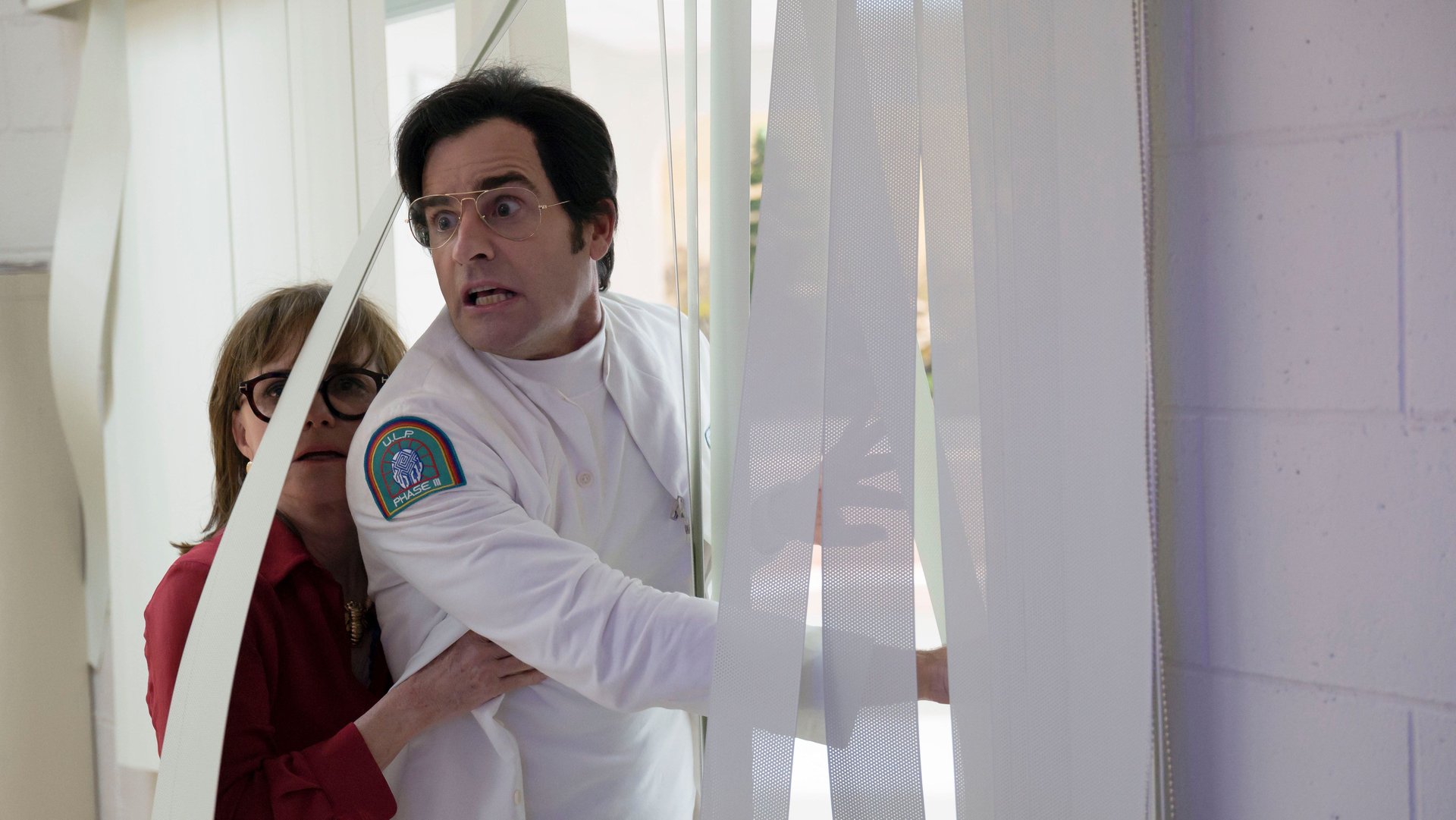Justin Theroux’s “Maniac” character is an instant comedic classic
The new Netflix miniseries Maniac is a wacky, experimental romp through broken psyches, and the most bizarrely entertaining new show of the fall TV season. So it’s no small praise to say that one of the very best parts of the series is Dr. James K. Mantleray, played by actor Justin Theroux.


The new Netflix miniseries Maniac is a wacky, experimental romp through broken psyches, and the most bizarrely entertaining new show of the fall TV season. So it’s no small praise to say that one of the very best parts of the series is Dr. James K. Mantleray, played by actor Justin Theroux.
As Mantleray, the chiseled actor wears a mock turtleneck, dons huge 1980s-style wire-rimmed glasses, and sports a pathetic wig to cover up his balding head.
In an alternate future version of New York City, Mantleray is the director of a mysterious pharmaceutical trial that promises to take its subjects’ suffering away by providing a series of pills. Each pill induces a new kind of fantasy in the user, and when these fantasies are monitored—and analyzed—by a supercomputer artificial intelligence, Mantleray believes they can unlock the source of what he calls “inefficient pain,” thereby eliminating it. Though strange, and almost certainly breaking several laws, Mantleray’s motives appear to be altruistic.
We later learn that, sure, while he does seem to genuinely want to help people, he has quite a number of issues himself. This is evident from our first view of Mantleray in the flesh, as Patrick Somerville, the head writer of the series, told Quartz: ”We meet him fucking an object.”
Indeed we do. When we first see him, he’s using one of many weird gadgets of Maniac‘s retro-futuristic New York setting: a “Sucktube.” Enough said, to avoid spoilers, but Somerville did tell us that the gag “was far more elaborate in the script.”
Mantleray’s paraphilia provides a hearty dose of laughs, but the real comedy treasure trove comes out of his deeply screwed up relationship with his mother, Dr. Greta Mantleray (Sally Field), a world-renowned psychologist whose personality and voice are the basis for the AI system that runs the drug trial.
Greta’s history with therapy and James’ preference for neurochemistry is a constant source of comedic tension between the two. Theroux and his mother also share a real-life occupation (both are writers), but the actor told Quartz that Greta and James’ mother-son relationship is certainly not based on his own family. “We actually have a very good relationship, so there wasn’t much to draw on there,” Theroux said of his mom. “She’ll get a kick out of it.”

Before the character appears, the audience encounters him via a video introduction. To record it, Theroux insisted on using a teleprompter, and having the teleprompter not work properly so that it would make the character’s line readings seem more genuine. ”I didn’t want the teleprompter person to be great at it,” he said. “I let the fuckups happen.” Theroux achieved what he wanted: Mantleray’s stilted, nebbish reading is a hilarious microcosm of the character.
Theroux’s deadpan delivery of phrases like “globular cluster of arborized realities” is perfect, painting Mantleray as someone extremely invested in his life’s work, even if it doesn’t make a lick of sense to literally anyone but himself. He’s clearly intelligent, but comes across like an insecure man-child, unaware that his ridiculous wig and off-putting affect only make him seem even more desperate.
“The more you try and present as a strong character, the weaker you come across,” Theroux said. “It’s like political leaders who have the appearance of being tough guys when really they’re the most vain, insecure people on the planet.”
This is far from the first time Theroux has displayed his comic genius on screen. He appeared in Zoolander and wrote the script for Tropic Thunder long before he ever starred in HBO’s The Leftovers, and is an underrated comedic presence who consistently demonstrates an ability to not take himself too seriously on or off camera. Played by a lesser actor, Mantleray could have become a complete caricature of an actual human being, but Theroux grounds him in a sense of humanity that is at once endlessly amusing and, oddly, sad.